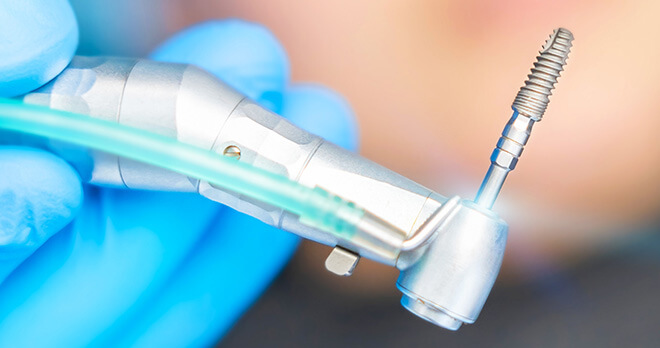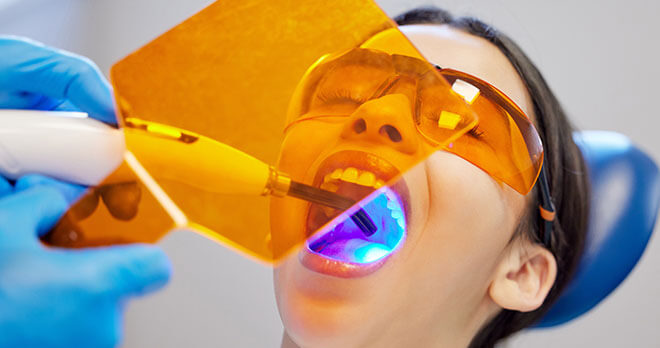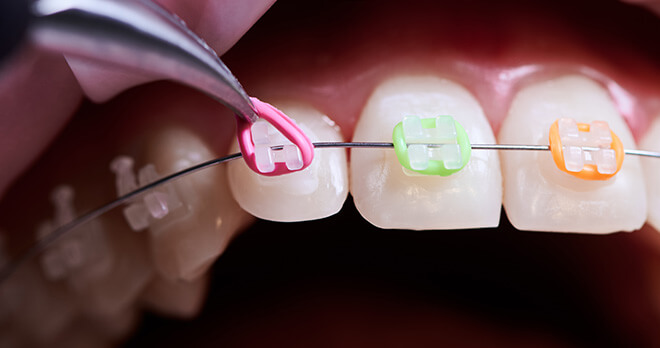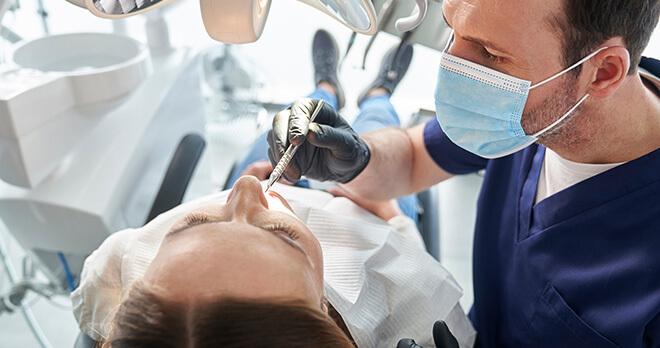Let’s talk about bite blocks… what are they?
Orthodontic braces usually consist of metal bands around your back teeth with an attachment wire that runs through the brackets on each tooth. The brackets all work together to pull your teeth into a healthier alignment.
In some cases, additional devices are needed to achieve a good result. Bite blocks, which are sometimes referred to as ‘ramps’ or ‘turbos’, are an addition that can help with your orthodontic journey.
What are Bite blocks?
Bite blocks are used to prevent your upper teeth and lower teeth from touching to avoid you breaking the brackets.
They are tiny devices that attach to your front or back teeth to keep your upper and lower teeth from contacting each other when you bite down.
They are usually made of metal, glass Ionomer cement, or acrylic and can be pink, blue, red silver or tooth coloured. In some cases, bite blocks may even be spring loaded. L-shape or triangular bite blocks are placed on the tongue side of your teeth and sometimes flat or mounded blocks are attached to the top surface of your back molars.
Why would I need Bite blocks?
Your orthodontist may provide you with bite blocks due to the way your teeth contact each other and, without use of these, it may slow down the straightening of your teeth or damage them.
In some cases, people with an overbite, crossbite, crowding, or a deep bite, use bite blocks to prevent them from biting down onto their brackets and popping them off, or worse damaging their teeth.
Are there any side effects from bite blocks?
Bite blocks can pose problems, like many dental devices, such as:
- Problems with chewing
- Speech impairment
- Discomfort
- Lost or worn blocks
- Biting on only one block
Thankfully bite blocks are only temporary and how long you will be required to wear them will depend on how quickly your teeth move into alignment.
If you have any concerns regarding your bite blocks, please do remember to consult your orthodontist for advice.
Whilst there are some aspects of orthodontic treatment that are reasonable and to be expected, there can be times where you may feel that you have received substandard care. If so, please do contact our team today and we will see if we can investigate further for you.
Got a question?
You can call the team on 0800 923 2080 or message them to understand more about you potential compensation claim for dental negligence. We will get back to you at a time that is convenient to you.
Common claim types
Insights and opinions
View more articles related to Cosmetic dentistry, Crowns and bridges, Dental implants, Dental nerve damage, Extractions, Gum disease, Information, Mouth cancer, Orthodontics, Root canal treatment, Tooth decay and Wisdom teeth










